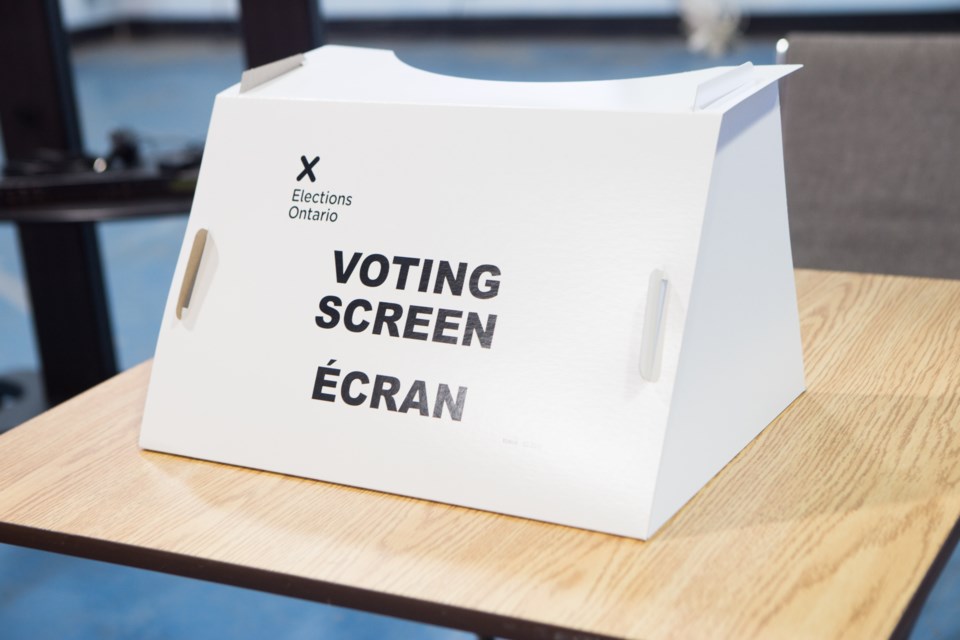Waiting until 2026 for a return to online voting may be the right way to go, agree several council members who supported digital ballots in the past.
The main reasons – a staff recommendation for mail-in ballots addresses accessibility concerns and potential problems with the voters list persist.
“At first blush I was disappointed in the staff recommendation. This is certainly not what myself nor a majority of Guelph citizens want,” said Mayor Cam Guthrie in an email statement to GuelphToday.
“Yet the people of Guelph and I equally want our voting systems, and the integrity of the outcomes of these elections, to be done with a high standard of care and oversight. The recommendations from staff accomplish that and that is what we should focus on.”
Guthrie was on the losing end of a 7-6 council decision in 2017 that saw online voting eliminated as an option for advanced polls during the 2018 municipal election, as were councillors Cathy Downer, Mark MacKinnon, Dan Gibson and Christine Billings.
Former councillor Andy Van Hellemond also supported online voting.
In a report released on Thursday, city staff recommend council authorize mail-in ballots as a remote alternative to voting in person during next year’s municipal election. The report cites concerns about the “overall integrity” of online voting results and difficulty related to potential recounts and/or verification of results.
“In the context of what has happened in the States, this necessity to have a paper ballot to count is important for the public ... to have confidence,” Downer said in response to the staff recommendation, which she supports.
“My whole point in supporting online voting the last time was completely about accessibility for people who, for whatever reason, can’t leave their home,” she continued, adding, “mail-in ballots don’t completely deal with that because you’re still having somebody take it to the mailbox and things like that.”
Guthrie also feels the use of mail-in ballots address most accessibility concerns and concurs with the staff recommendation.
“First and foremost my advocacy for online voting has always been centred around fighting for accessibility issues,” he said. “Hearing the stories of those that used accessible online voting in 2014 (some for the first time only because it was accessible) were powerful and it was why I passionately fought for the continuation of this method in the 2018 election and for the upcoming 2022 election.”
Council-of-the-day allowed online voting during the advanced voting period in the 2014 municipal election and 33 per cent of all votes cast were done using that method. However, there were issues with the voters list, as prepared by the Municipal Property Assessment Corporation (MPAC).
In some cases, names and birth dates didn’t align, leading to a “number of corrections” that made online voting difficult to administer, notes the recent staff report.
Since then, the provincial government ordered the responsibility of generating voter lists be given to Elections Ontario – a process that has not yet been completed.
“If MPAC’s doing it again, maybe it’s a decision we have to look at for the 2026 election,” said MacKinnon of online voting.
At the time he spoke with GuelphToday, MacKinnon hadn’t read the staff report but said he is aware of some of the details it contains.
Billings feels similarly.
"I understand the new concerns staff have raised and feel that they want to move forward with the tried-and-true methods of voting for 2022. My hope is that internet voting will be assessed again as an option for the 2026 election. At the end of the day people need to have confidence in our election process," she said in an email.
Having an accurate voters list is key, added Guthrie.
“This was widely regarded by many elections officers and city clerks as an important step to have further integrity of the electors list,” he said, speaking of Elections Ontario taking over responsibility. “Unfortunately, it was recently announced that this transfer of data would now not occur until the 2026 municipal election.”
In an email to GuelphToday on Thursday evening, Gibson said he’s still “digesting” the report.
“Of course security of mail in ballots and online ballots are always top of mind. I see mail-in ballots (with proper security checks), helping with accessibility, but I do have some questions as to why online voting is not being recommended,” he said. “I’m hoping to flesh out these answers in the coming week.”
City council is set to discuss the report and, potentially, make a decision regarding alternative voting methods during a special meeting on Feb. 17.
A decision on voting methods is required to be made by May 1 of an election year.
